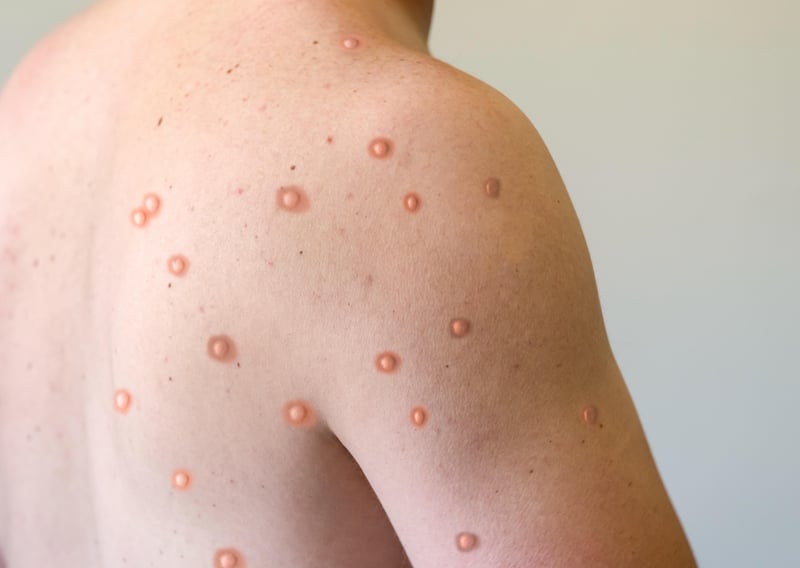Manténgase sano!

- Robert Preidt
- Posted June 8, 2022
Monkeypox May Sometimes Spread Through the Air
After adding, and then deleting, a recommendation that U.S. travelers wear masks to protect themselves from monkeypox, the U.S. Centers for Disease Control and Prevention still says that those traveling to countries where the disease is spreading and "other people who may be in close contact with a person who has been confirmed with monkeypox" should consider wearing masks.
Why the new guidance? The advice comes as experts say the monkeypox virus can sometimes spread through the air, at least over short distances, but it's not clear exactly how much that contributes to the spread of the disease.
When it updated its guidance last week for travelers, the CDC advised: "Wear a mask. Wearing a mask can help protect you from many diseases, including monkeypox."
But in a statement released Tuesday, the agency said it "removed the mask recommendation from the monkeypox travel health notice because it caused confusion," The New York Times reported.
The CDC still advises monkeypox patients to wear a surgical mask, "especially those who have respiratory symptoms," and also asks other household members to "consider wearing a surgical mask" when in the presence of the person with monkeypox.
As of Wednesday, the United States had confirmed 35 cases of monkeypox in 12 states and the District of Columbia. Worldwide, more than a thousand people have been diagnosed with the disease since the first case in the outbreak was reported on May 13, and at least another thousand cases are under investigation, the Times reported.
In previous monkeypox outbreaks, most cases occurred among people who had close contact with an infected person or animal, but airborne transmission was still the only explanation for some cases.
But in media and public briefings, health officials have not specifically discussed the possibility of airborne transmission of the monkeypox virus or the use of masks for protection, according to the Times.
Still, monkeypox does not spread easily, unlike pathogens such as coronavirus or flu virus.
Monkeypox infection requires "really close sustained contact," Andrea McCollum, the CDC's leading expert on the virus, told the Times.
"This is not a virus that was transmitted over several meters," she explained. "That's why we have to be really careful how to frame this."
When the Times asked McCollum whether health officials should make the possibility of airborne transmission more widely known, she replied, "It's a fair point to make, and it's something we certainly should consider moving forward."
Planning for potential airborne transmission of monkeypox is particularly important in hospitals, Dr. Donald Milton, an expert on viruses at the University of Maryland, told the Times.
The many unknowns of monkeypox -- including the primary method of transmission -- were discussed at a conference last week organized by the World Health Organization.
"It's very ambiguous what the true or dominant route of transmission is, and some of that can be addressed in animal models," Nancy Sullivan, a researcher at the U.S. National Institute of Allergy and Infectious Diseases, said at the conference, the Times reported. "Probably that needs to take a front seat for some of the laboratory research."
More information
Visit the U.S. Centers for Disease Control and Prevention for more on monkeypox.







